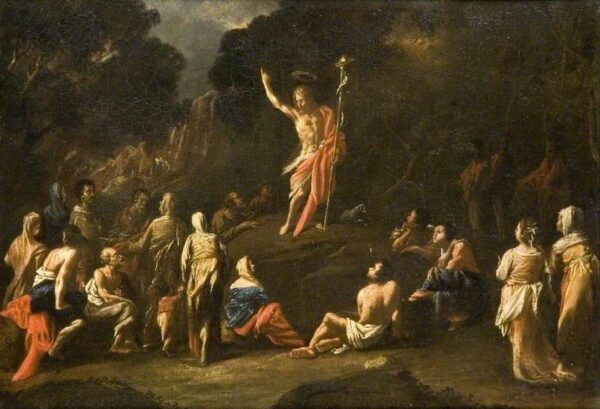
They come from the mountains or the desert, most often – wild, uncultivated places where the hand of man has yet to make much of an imprint. They are themselves of this character: roughshod, unshaven and not exactly fresh from the bath. They have bees in their bonnets. They are not in the mood for chit chat.
They are prophets, and come among us to deliver hard truths, the kind that shake up the status quo which, as they will explain, has sunk to a shameless, unheard-of low. Things must change, they cry, or there will be Hell to pay.
But hang on, here come the priests, handsomely capped and robed, the embodiment of that very status quo, and keen to put these woolly-headed interlopers in their place. Things are as they are for a very good reason, they reason. The people need show, ceremony and, above all, stability, or there will be Hell to pay. We’ve seen where your puritanical penchant for self-improvement leads: the questioning of authority, the disorderly behavior, the decline in hard-won standards of good taste.
The age-old line of scrimmage between prophet and priest and the mutual antagonism of their respective positions so perfectly reflects the forces of reform and reaction, self-renewal and self satisfaction, that we often resort to it when we think about the state of wine today, where all is not, it must be said, as harmonious as it might, could, should be. On the one hand, prophets who openly decry the dispiriting fungibility of commercial, capital-intensive, mass market-oriented wine; on the other, entrenched authorities who assert that all is best (could not be better) just as is. Who the betting line favors is anyone’s guess.
To paint things this way ignores the nuances, to be sure. Appellation authorities responsible for the kind of wine that is bottled under their legally-protected identifiers (Côtes du Rhone; Chianti Classico, e.g.) are regional bodies. Notions of what makes a quality wine necessarily vary among them, as does the level of tolerance they are willing to extend to those with a more individual vision.
It’s also true that appellation laws don’t constrain anyone absolutely, since a winemaker always has the option to go to market without the appellation designation (which has the standing of a kind of communal trademark) and let the wine stand or fall purely on its merits. We’re seeing more and more of this as consumers realize that they can safely pledge their fealty to a quality-minded progressive, estate, even if its wine bears nothing more that the humble designation Vin de Table or Vino di Tavola.
It is all quite exciting, we think. The prophets said it would be. It’s also a little confusing; something the priests warned us would happen.